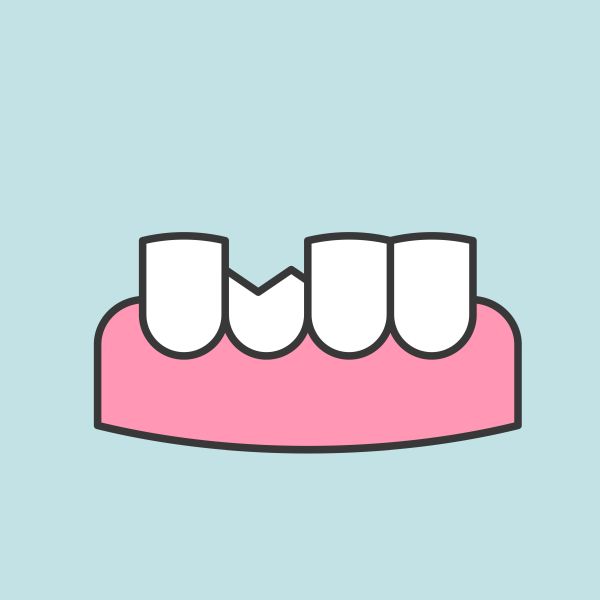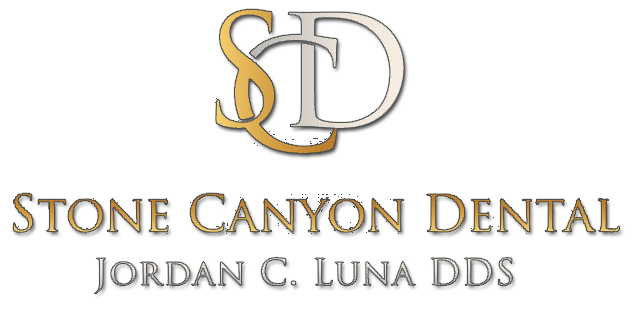



Most people have to deal with a broken tooth at some point in their lives. Teeth are extremely tough and durable, but they are also regularly exposed to extreme forces and acids that can damage them. This sometimes leads to teeth becoming broken, cracked or chipped.
Common reasons a person might end up with a broken tooth include:
- A hard blow to the face from contact sports or an accident
- Chewing on something hard
- Cavities weakening a tooth until bits of it begin to fall off
- Old large fillings that do not support the enamel
How a broken tooth is treated
A damaged tooth does not necessarily lead to pain. Most minor chips and breaks do not cause pain because they do not reach the tooth's nerve. If the damage makes it all the way into the pulp chamber, the person might experience extreme levels of discomfort. The pain usually intensifies when the tooth is exposed to cold or hot items or air.
The pain associated with a broken tooth typically comes and goes. Others only feel pain when direct pressure is applied to the tooth.
Here is how different types of breaks are treated:
Cracked teeth
There are no effective home remedies that can treat a cracked tooth. The best thing a person can do when it occurs is to visit a dentist immediately. A cracked tooth usually involves a little pain and discomfort, especially when the tooth is exposed to extreme temperature or sweet things.
An excellent way to detect if a tooth is cracked is by biting down with it. If there is no pain until the bite is released, there is a good chance that the tooth is cracked.
Broken teeth
A broken tooth requires dental assistance so the dentist can determine if the nerves are in danger and what caused the break. If the damage has reached the tooth's nerve, a root canal is usually needed to save the tooth. If the damage only made it past the enamel and dentin, the tooth can be restored and protected with a crown.
Here are simple things patients can do to take care of a damaged tooth before their visit to the dentist:
- Rinse with warm water to help eliminate impurities in the mouth
- If there is any bleeding, apply gauze to the area until the bleeding stops; a tea bag can be used as a substitute
- Use a cold pack to reduce any swelling
- If the person is unable to get dental care quickly, cover the remaining part of the tooth with dental cement
Treatments that a dentist might use to treat a damaged tooth include:
- Root canal therapy
- Crowns
- Veneers
- Dental bonding
- Extraction
Get quick treatment for your broken tooth
Dealing with a damaged tooth? Stop by our clinic to explore your treatment options. Feel free to ask any questions about having a broken tooth or any other dental condition.
Request an appointment here: https://stonecanyondental.com or call Stone Canyon Dental at (972) 996-3191 for an appointment in our Sunnyvale office.
Check out what others are saying about our services on Yelp: Read our Yelp reviews.
Recent Posts
A healthy, complete smile is not only about looking good but is also important for your overall well-being. Dental bridges can help restore the appearance and function of your teeth. However, common misconceptions about these replacement options can prevent people from understanding their benefits. Let us debunk some common myths about dental bridges.While dental bridges…
When a dental emergency hits, it is important to know where to go to access the right care. An emergency dentist is often the right provider, although life-threatening emergencies require a trip to the emergency room. Learning when to go to the emergency dentist versus the emergency room can save you time, money, and discomfort.…
Curious about dental bridges? Read on to learn more about this type of restoration. The aftermath of tooth loss can be a struggle. The loss puts extra pressure on the rest of the teeth and chewing becomes less effective. Your speech gets affected too. Fortunately, dental bridges lay out a path to restoring the look…
When the smile is missing a tooth or three, a general dentist may recommend dental bridges to restore its appearance and functionality. Even a single missing tooth can cause difficulties with eating and speaking. It also leaves room for the remaining teeth to shift, leading to a misaligned bite. While traditional and implant-supported dental bridges…


